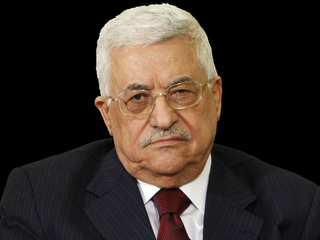Fatah readying to elect new leadership
 Bethlehem, West Bank - The Fatah party of Palestinian President Mahmoud Abbas prepared Friday to elect a new leadership for the first time in 20 years, after a dispute over voting by absent Gaza delegates was finally resolved.
Bethlehem, West Bank - The Fatah party of Palestinian President Mahmoud Abbas prepared Friday to elect a new leadership for the first time in 20 years, after a dispute over voting by absent Gaza delegates was finally resolved.
Meanwhile, as 18 committees passionately debated a host of complex issues at the ongoing Fatah convention in the West Bank, Israelis reacted angrily to a resolution blaming it for the death of Yasser Arafat, and to preconditions for the resumption of peace talks.
Voting by some 2,500 delegates for the party's two top decision- making bodies, the 21-member Central Committee and the 120-member Revolutionary Council, was now expected to begin Saturday morning, after opening of the morning session at 10 am (0700 GMT).
The voting had originally been scheduled for Thursday, but was postponed repeatedly owing to heated arguments among the delegates to what was Fatah's first party convention since 1989.
One issue of debate was how some 400 Fatah members from Gaza should be allowed to vote. They have been stranded in the strip, unable to attend the convention in the West Bank city of Bethlehem, after the rival and radical Islamist Hamas movement ruling the coastal salient refused to allow them to leave.
Nabil Shaath, a member of Fatah's current Central Committee, told reporters it was agreed with the Central Committee and the convention leadership that Gaza delegates can vote with their cellular phones. Several other options had been discussed as well, including leaving a certain quota of seats open for Gaza members.
The final deadline for the registration of candidates for the two bodies was further extended to Friday night, the Palestinian, Bethlehem-based Ma'an news agency reported
- though preliminary nominations for the two top bodies were announced already in the morning, with at least 86 running for the Central Committee and some 500 for the Revolutionary Council.
The Central Committee is Fatah's top body, while the Revolutionary Council performs a legislative function.
Former Gaza security strongman Mohammed Dahlan, already a current Central Committee member, only formally submitted his nomination after the dispute over Gaza voting was resolved. Dahlan is loathed by some for alleged corruption and many old guard hold him responsible for the 2007 Gaza take-over by Hamas. He now lives in the West Bank.
High-profile candidates for the Central Committee include, besides Abbas, former Palestinian premier Ahmed Qureia and former West Bank Preventive Security Commander Jibril Rajoub, now the head of the Palestinian football association. They represent the movement's so- called "old guard.
Fatah's "young guard" candidates include people like the charismatic Marwan Barghouti, jailed in Israel for his role in the second Palestinian uprising, and Hussam Khader, from the northern West Bank city of Nablus, who also served several jail sentences in Israel for his activism in Fatah's armed wing, the al-Aqsa Brigades.
Delegates discussing the issue of negotiations with Israel meanwhile late Thursday drafted a resolution that set 14 preconditions for resuming the peace talks, including a total settlement freeze and the release of all Palestinian militants and radicals from Israeli prisons.
Another panel discussing the death of late Palestinian leader and Fatah founder Yasser Arafat, also phrased a resolution that blamed Israel for his "assassination" in November 2004.
That sparked some sarcastic and angry reactions in Israel, with Israeli Interior Minister Eli Yishai, of the ultra-Orthodox Shas coalition party, telling reporters late Thursday: "The congress' decision is further proof that peace talks on Mars have a better chance of succeeding than in our region."
Transportation Minister Yisrael Katz, a tough hawk in Prime Minister Benjamin Netanyahu's ruing Likud party said: "Those who want war will get war." The Fatah resolution proved that Abbas was not leading his movement, but rather "being led" to "delusional" and extremist positions against Israel, he slammed.
He said Israel should respond by toughening its policy toward the Palestinians.
One lawmaker, Michael Ben-Ari of the ultra-nationalist, pro- settler National Union party, called the resolution a "blood libel" against Israel. Netanyahu himself issued no formal reaction.(dpa)